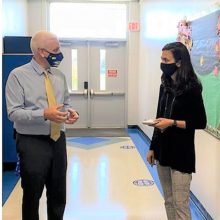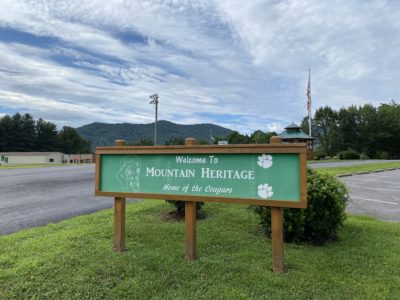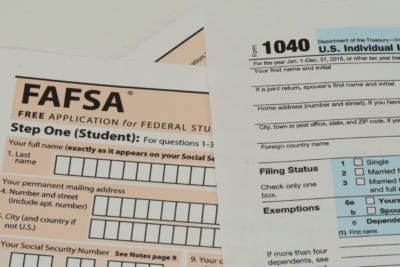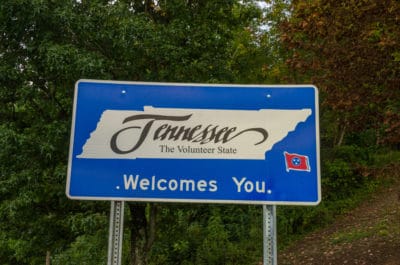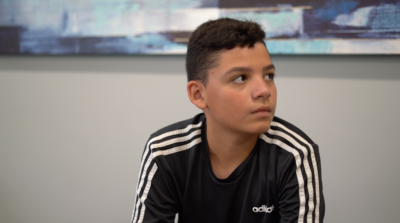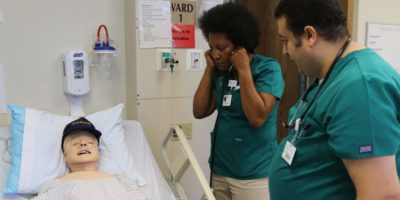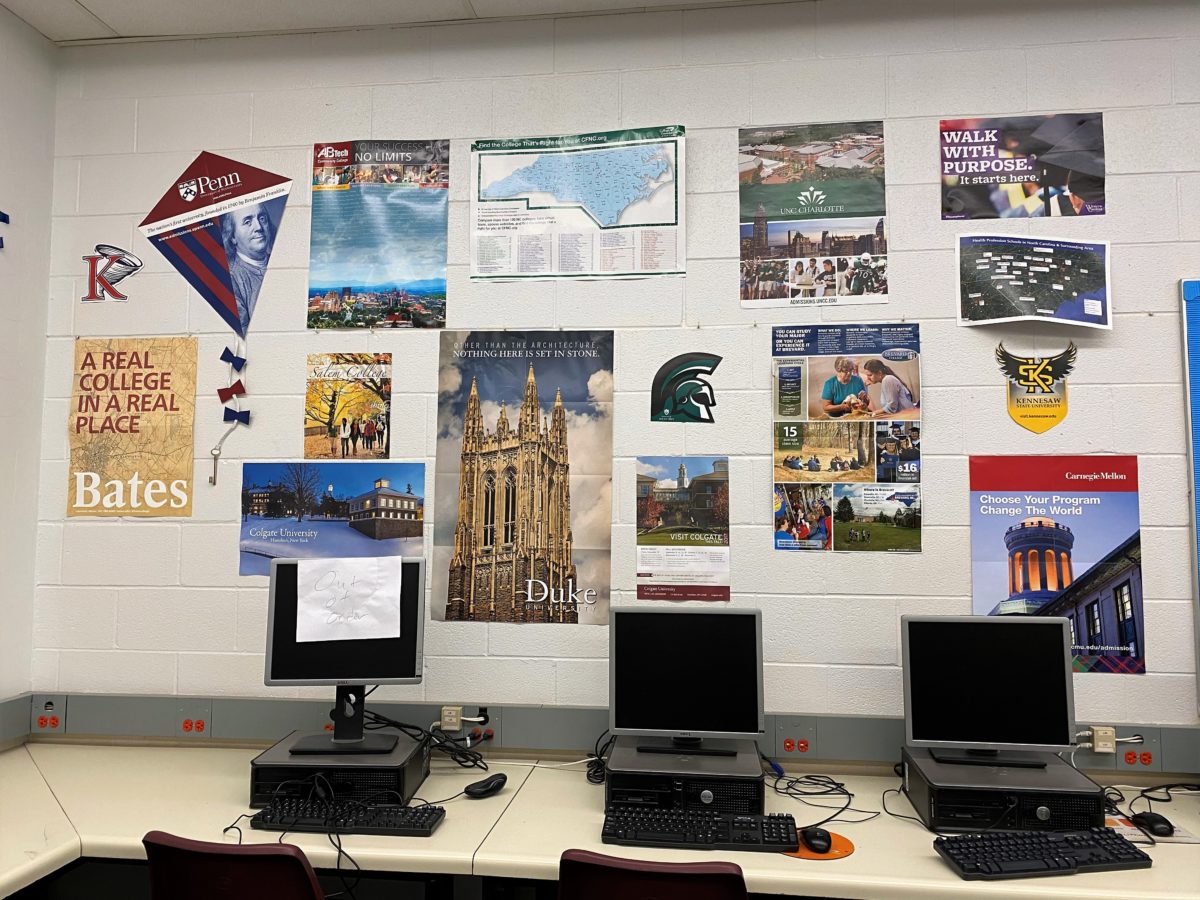

Oct. 1 marks the beginning of the 2021-2022 Free Application for Federal Student Aid (FAFSA) cycle. The form can be filled out by current and prospective college students any time between now and June 30, 2022. But many colleges and universities have earlier deadlines, and North Carolina recommends that students fill it out as soon as possible since aid is often granted on a first-come first-serve basis.
With many of North Carolina’s high schools operating under remote or hybrid instruction due to COVID-19, this year’s FAFSA cycle will look different than those of previous years. Before the pandemic, many schools relied on in-person events, such as FAFSA family nights, to encourage FAFSA completion. Now, counselors and college advisors are working to find new ways to support students and parents remotely.
Plus, families may be facing unexpected financial hardship due to COVID-19. Roughly 1.3 million North Carolinians have applied for unemployment benefits since March 15. That means there could be more families in need of aid than in previous years.
When it comes to the application itself, families will have to report their income based on 2019 tax returns. That data will determine a family’s expected out-of-pocket college payments. If those returns don’t reflect families’ current financial situations, students can file appeals for a professional judgment review with the school they plan to attend. That process requires them to provide additional documentation to explain their situation, and it can take time — all the more reason that students should fill out the FAFSA as soon as possible.
Let’s take a look at why the FAFSA matters, where North Carolina’s completion rate stands, how districts are working to encourage FAFSA completion amid the pandemic, and what resources exist to support them.
To learn how to fill out the FAFSA — including information on deadlines, creating an FSA ID, entering tax information, and more — check out this guide.
What is the FAFSA and why does it matter?
The FAFSA is a form used to determine eligibility for federal financial aid, and at times, also determines state, institutional, and private aid.
According to a 2020 report by Education Strategy Group (ESG), students who complete the FAFSA are more likely to enroll in higher education – 90% of FAFSA completers attend college directly after high school, compared to just 55% of students who don’t complete the FAFSA. And, FAFSA completers are more likely to persist in their coursework and obtain a degree.
However, fewer than two-thirds of graduates complete the FAFSA each year, leaving an estimated $3.4 billion in aid on the table annually. Additionally, students of color are less likely to complete the FAFSA – 74% of African-American students and 66% of Hispanic students complete it, compared to 82% of white students.
Numerous barriers exist to completing the FAFSA — from form complexity to a lack of awareness to parental mistrust. Learn more about those barriers and what can be done to overcome them here.
A quick look at the data
As of Sept. 11, 2020, North Carolina’s FAFSA completion rate for the 2020-21 cycle was 63.2%, slightly above the national average of 61.2%. That ranks as the 17th highest completion rate nationally. By 2030, myFutureNC has set a FAFSA completion rate goal of 80% – the same as neighboring Tennessee.
Use the map below to see the 2020-21 FAFSA completion rate for any North Carolina district or charter school. Read more about FAFSA completion data and the impact of COVID-19 here.
Boosting FAFSA completion amid COVID-19
Under plan B…
In the 2020-21 FAFSA cycle, Alleghany County Schools had the highest FAFSA completion rate of any district in the state (through September 11, 2020) at 75-79%, according to federal data.
Jarred Cornette, GEAR UP coordinator for the district, attributes that success in part to the postsecondary access team that works with the district’s high school, Alleghany High. The team includes Cornette, a College Advising Corps member, a parent and family engagement coordinator, a senior counselor, and a career coach from the local community college.
Before the pandemic, their FAFSA work included pulling every senior into a computer lab for time to work on their FAFSA, one-on-one meetings for every senior with the College Advising Corps member, and multiple FAFSA nights where students and parents could work on the form together. But COVID-19 has changed all of that.
Alleghany County is currently operating under plan B, a hybrid model where students are split into two groups that rotate between a week of in-person instruction and a week of remote instruction. If students aren’t receiving in-person instruction in a given week, they aren’t supposed to be in the building at all. And with so much less in-person instructional time, Cornette said it will be harder to justify pulling students out of class.
So the district is changing its approach. In mid-October, Alleghany High will hold a FAFSA drive-in thanks to Wi-Fi extenders that allow internet to reach the school’s parking lots. Families will park their car, pull out the Chromebook that every student has, and receive assistance on their FAFSA. The postsecondary access team is also offering virtual office hours on Fridays where students can drop in a Zoom call to ask questions.
Under plan C…
Dare County Schools also boasts a high 2020-21 FAFSA completion rate (65-69%) — but the district is operating under plan C, or fully remote instruction. Counselors and college advisors in the district have taken the same series of supports they offered before the pandemic and moved them to Google Meet.
In September, counselors held virtual meetings with each senior to discuss graduation requirements, applying to college, and submitting the FAFSA. After that meeting, counselors fill out a spreadsheet with notes about each student’s specific situation.
Then, they are passed off to Thomas Elliot, the district’s College Advising Corps member, for additional support. Virtual workshops will be held throughout the fall to offer more specific financial aid information. One silver lining of virtual FAFSA support is that parents and students sometimes join the meetings together — allowing counselors to support them in filling out both the parent and student sections of the FAFSA.
John Hunting, College of the Albemarle liaison for Dare County Schools, said he’s also thinking about how to prepare students for the possibility that it could take much longer for colleges and universities to respond to their submitted FAFSA forms than in previous years.
“It could be three to five weeks before they hear what else is needed to complete their FAFSA,” said Hunting, referring to the verification process that some FAFSA applications are selected for, which requires students to provide additional documentation.
Pandemic aside, Amy White, counselor at First Flight High School, said constant communication with students is key to boosting FAFSA completion. Hunting agreed — he’s turned to text messaging as a more effective way to check-in with students than email.
Resources and support
NCSEAA
The North Carolina State Education Assistance Authority (NCSEAA) is an organization that helps North Carolinians pay for education. Because the FAFSA is the required application for state need-based aid, NCSEAA offers FAFSA outreach support, such as training for high school counselors.
Kathryn Marker, director of grants, training, and outreach for NCSEAA, said the organization is working to making lemonade out of lemons. “We feel like we’re able to reach the state in some ways more thoroughly by developing our online presence and our virtual workshops,” said Marker, referencing the organization’s shift to offering online supports for the FAFSA amid COVID-19.
Click here for upcoming virtual financial aid workshops for education professionals, and email outreach@ncseaa.edu if you’d like to register.
CFNC
The College Foundation of North Carolina is a free service provided by a collaboration of Pathways (the NC Department of Public Instruction, the NC Community College System, the NC Independent Colleges and Universities, and the University of North Carolina System), the NCSEAA, and College Foundation, Inc.
When it comes to the FAFSA, CFNC’s website offers a host of resources — including an interactive map to help students find local financial aid assistance, a form students can fill out to receive personalized FAFSA assistance, and a host of videos on how to fill out the application. CFNC also has FAFSA tips for specific student populations, such as adult learners or refugees, and has fact sheets available in both English and Spanish.
Countdown to College
North Carolina’s Countdown to College is an annual CFNC event held in October that aims to support high school seniors in completing three important college enrollment steps: residency determination, FAFSA, and applications.
This year’s slate of virtual events includes multiple sessions on the FAFSA and Residency Determination Service (RDS) the week of Oct. 12, followed by Financial Aid 101 sessions the week of Oct. 26. The Financial Aid 101 sessions will include information on how to ask for professional judgment if a family’s financial situation has changed since 2019.
As part of the event, many North Carolina colleges and universities will waive their application fees from Oct. 19-30. Click here for more information on Countdown to College.
